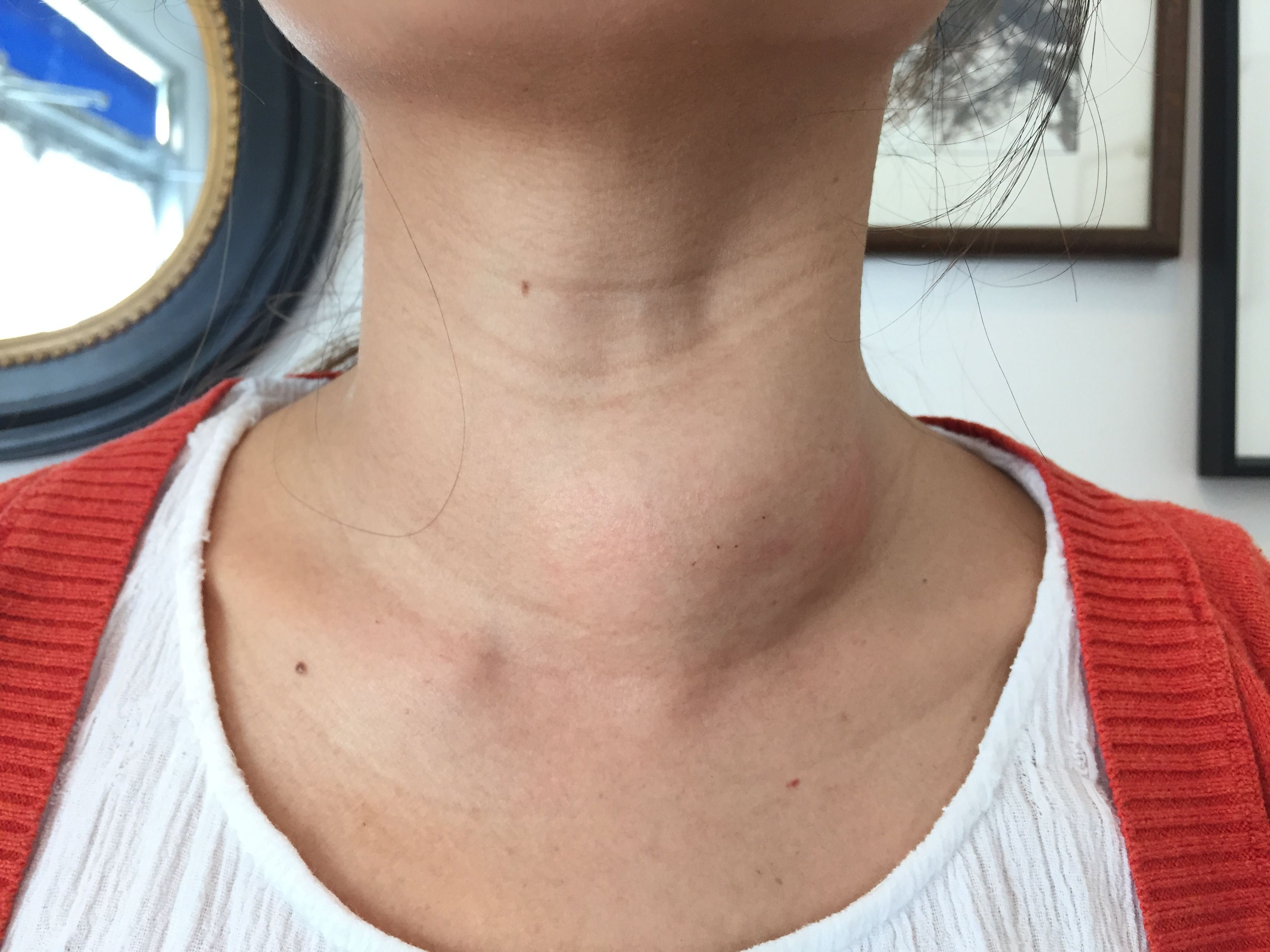Thyroid Disorders
The thyroid is a butterfly-shaped gland that sits low on the front of the neck. Your thyroid lies below your Adam’s apple, along the front of the windpipe. The thyroid has two side lobes, connected by a bridge (isthmus) in the middle. When the thyroid is its normal size, you can’t feel it.
Brownish-red in color, the thyroid is rich with blood vessels. Nerves important for voice quality also pass through the thyroid.
The thyroid secretes several hormones, collectively called thyroid hormones. The main hormone is thyroxine, also called T4. Thyroid hormones act throughout the body, influencing metabolism, growth and development, and body temperature. During infancy and childhood, adequate thyroid hormone is crucial for brain development.

What are thyroid disorders?
Thyroid disorders are conditions that affect the thyroid gland, a butterfly-shaped gland in the front of the neck. The thyroid has important roles to regulate numerous metabolic processes throughout the body. Different types of thyroid disorders affect either its structure or function.
The thyroid gland is located below the Adam's apple wrapped around the trachea (windpipe). A thin area of tissue in the gland's middle, known as the isthmus, joins the two thyroid lobes on each side. The thyroid uses iodine to produce vital hormones. Thyroxine, also known as T4, is the primary hormone produced by the gland. After delivery via the bloodstream to the body's tissues, a small portion of the T4 released from the gland is converted to triiodothyronine (T3), which is the most active hormone.
The function of the thyroid gland is regulated by a feedback mechanism involving the brain. When thyroid hormone levels are low, the hypothalamus in the brain produces a hormone known as thyrotropin releasing hormone (TRH) that causes the pituitary gland (located at the base of the brain) to release thyroid stimulating hormone (TSH). TSH stimulates the thyroid gland to release more T4.
Since the thyroid gland is controlled by the pituitary gland and hypothalamus, disorders of these tissues can also affect thyroid function and cause thyroid problems.

Thyroid Conditions
- Goiter: A general term for thyroid swelling. Goiters can be harmless, or can represent iodine deficiency or a condition associated with thyroid inflammation called Hashimoto’s thyroiditis.
- Thyroiditis: Inflammation of the thyroid, usually from a viral infection or autoimmune condition. Thyroiditis can be painful, or have no symptoms at all.
- Hyperthyroidism: Excessive thyroid hormone production. Hyperthyroidism is most often caused by Graves disease or an overactive thyroid nodule.
- Hypothyroidism: Low production of thyroid hormone. Thyroid damage caused by autoimmune disease is the most common cause of hypothyroidism .
- Graves disease: An autoimmune condition in which the thyroid is overstimulated, causing hyperthyroidism.
- Thyroid cancer: An uncommon form of cancer, thyroid cancer is usually curable. Surgery, radiation, and hormone treatments may be used to treat thyroid cancer.
- Thyroid nodule: A small abnormal mass or lump in the thyroid gland. Thyroid nodules are extremely common. Few are cancerous. They may secrete excess hormones, causing hyperthyroidism, or cause no problems.
- Thyroid storm: A rare form of hyperthyroidism in which extremely high thyroid hormone levels cause severe illness.
Step by step exam
The doctor who suspects there is a problem with the thyroid will surely ask you to swallow to examine the movement of the thyroid. You can also check the skin and eyes, weigh yourself and take the temperature. Additionally, he will request blood tests, thyroid ultrasound and other exploratory tests.
Signs of hypothyroidism
The symptoms of hypothyroidism appear slowly. That is, you could have the disease and not have any discomfort for months or years. When it appears you are likely to feel: weakness, weight gain, lack of appetite, change in menstrual periods, lack of sexual desire, feeling cold when others do not feel it, constipation, muscle aches, swelling around the eyes, nails brittle hair fall.
Signs of hyperthyroidism
Some common symptoms of hyperthyroidism are: Exhaustion, weight loss, nervousness, rapid heartbeat, increased sweating, feeling of heat when others do not feel it, change in menstrual periods, more frequent bowel movements, tremors, bulging eyes.

Lifetime
In almost all cases, hypothyroidism can be treated with medications that contain thyroid hormone. The dose of the drug is slowly increased until the levels in the blood are normalized. Almost all people with hypothyroidism have to take this hormone for the rest of their lives. However, the dose may change from time to time.
Iodine and surgery
The doctor is likely to recommend treatment with high doses of reactive iodine to destroy certain parts of the thyroid gland. In some cases, it may be necessary to have surgery to remove the thyroid gland.
Woman and pregnancy
Thyroid diseases involve certain risks in women and babies during pregnancy. If the disease is not controlled, problems are likely to arise: the baby may be born smaller than normal, premature birth, poor mental capacity, and in the woman there may be preeclampsia, swelling due to fluid retention, and abnormal kidney function, beats irregular heart or heart failure.
SOURCE:
https://www.webmd.com/women/picture-of-the-thyroid#1
https://www.medicinenet.com/thyroid_disorders/article.htm#hypothyroidism